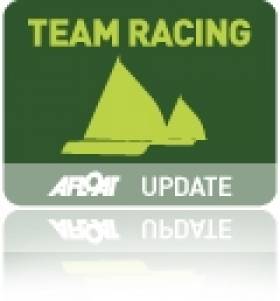Displaying items by tag: Fastnet Sails
Preparations Underway for Team Racing Worlds
With the advent of 2011, preparations are now well under way for the holding of the ISAF World Team Racing Championships at Schull from August 27th, 2011 to September 23rd, 2011 writes Claire Bateman. It is a major triumph for the village of Schull, Co. Cork to host the World Championships. The organising committee on behalf of the Fastnet Marine and Outdoor Education Centre (FMOEC) was set up in 1997 and is an adjunct of Schull Community College and the facilities function under the auspices of the Cork County Educational Committee. As Schull is a village community this event will be seen as a community undertaking and the Schull Development Association will be a co-operating organising authority.
The event will be sailed in TR3.6 dinghies which are not too dissimilar to a firefly and 26 boats will be built locally at a cost of €5000.00 each. The hulls will be manufactured in Midleton and the sails will be built by the local sailmaker, Fastnet Sails, in West Cork. So far twelve boats have been sponsored. One of these has been sponsored by Schull Harbour Sailing Club where members have come up with a novel idea to sponsor a second boat. This is a one hundred club where members and their friends each contribute €50.00 towards the project.
Team Racing is a very popular branch of sailing where everything happens very quickly and there is no better school for tactical decision making and understanding of the rules with six boats at a time performing an intricate and aggressive dance where two teams of three race to try and achieve a winning combination of places – with the lowest score winning.
ISAF wish to invite 28 teams to participate at the event in August with teams coning from as far away as Australia, New Zealand and the U.S. with the host country having three teams. Teams are also expected from Italy, Japan, Poland, the U.K. France and Croatia.
Further information or queries regarding sponsorship for this exciting World Championship can obtained from Mr. Tim O'Connor, Principal, Schull Community College at [email protected] or Mr. David Harte, Manager, FMOEC at [email protected].
Schull is a unique part of Ireland for sailing and socialising. The scenery is breath taking, the sailing waters are magnificent, the reputation for organisation of major events is second to none and all our good wishes for the successful running of this major undertaking are with the organisers.





























































